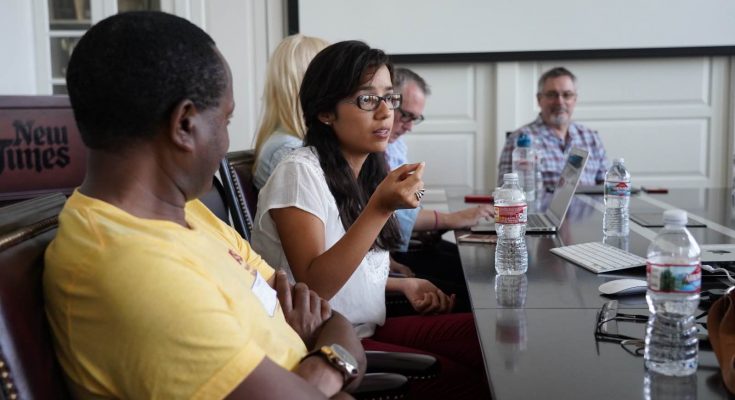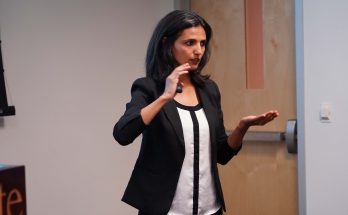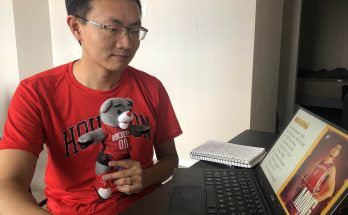“I am Mónica, from Cuba”. Now this is the first thing that comes to my mind when it’s about start talking, after having introduced myself beginning like this so many times lately.
Along with my 10 fellows Fellows of the 10th cohort of Humphrey Program, from ten different countries, after almost a month in Phoenix I’d like to settle down and pick a short break after the whirlwind of first days, just to become conscious of our new life system and dynamic.
That been said, I wanted us all to share a memory of what we take from these first weeks, what do we remark and what we look forward in a year from now.
Seven questions tried to help guiding our thoughts.
Phoenix in few words
“Being in Phoenix is like playing a video game”, says Aung Sue from Myanmar. And this is the logic behind his statement:
“First I need to learn how to take public transport, then I need to learn where I can have food. After that, I have to find a place to stay and make sure I understand well about the education system in here. All the faces that I am seeing around on light rail or the ASU are very different from what I am usually seeing in my hometown. And you know, you have to play step by step and make yourself to level up. But, I am enjoying this game, for sure”.
For everyone of us this is the first time in Phoenix (for many it is also first time in the US). Everytime I googled myself images of the city to get an impression of what I should expect to see, I found cactuses and mountains in the horizon. Not that far from true actually, but the city is definitely a lot more than that.
Chentao Cui, from China, describes it as a “big, hot, concrete forest”. The heat is something that amazed everyone of us. Even if we could believe that Egypt is among the hottests places in the world, Mona Aly assures that when she went out in Phoenix during day time, she felt “like someone opened the hair dryer, the oven, and the heater all at once”.
“A hot furnace or hot air balloon where you feel like heat and you altogether trapped and can’t leave”, says Noreen Shams, from Pakistan. Nera Valentic from Croatia insists: “Hot, hotter, super hot!”
“It’s a city of friendly people, but an unfriendly transportation system”, Mona adds. Radovan Bogojevic, from Montenegro (and Gigo from now) finds that is “not made for people without cars”. In fact, Deus Ruhangariyo from Uganda, says “there are more cars than people”. Ha Tran, from Vietnam feels like it’s monotonous, although Pierre Negaud from Haiti thinks it’s a city “with forethinking urbanization plan that connects people, communities”.
The hardest part
Dealing with everyone’s and oneself’s English “in a total English circumstance”, as Chentao said, has been just the beginning of this long journey. These have been days of “keep everything in check. There is so much information we have been receiving it is hard to keep a pace for now, maybe later when dust settle and things will be routine it would be easier”, Noreen hopes.
She’s not alone: “Being overwhelmed by the information intake” was Mona’s answer. Along going grocery shopping! “Instead of grabbing some washing powder and getting on with my day, I find myself standing in the detergents aisle for 15 minutes sifting through 20 different brands that all claim they are the best”. Happens the same to me.
For Camille Elemia from the Philippines and Ha from Viet Nam, moving around without a car is the hardest thing, because it is expensive. Gigo says that “when you combine the absence of nearby grocery stores, and the historically high temperatures in August, getting peanut butter is a quest”.
Nera had a “roommate crisis” challenging situation because she couldn’t find anyone to share apartment. “In the end, with Jan’s help I managed to move to single bed apartment. So the hardest thing for me was setting up my apartment twice in two weeks, especially due to the fact that I never lived in rented apartment before”.
For Deus wasn’t hard to find an apartment to live, but once he did, what’s a hardcore for him is to actually find it in town! “Sometimes I find myself moving around, it happens each time I want to change the route so that I discover more ways to get there!”. I bet there’s a lot of fun in that, except for the heat…
It has been the weather actually “the toughest adjusting challenge in Phoenix” for Pierre. For Aung it was way more academic: he had a hard time deciding which class to take.
The easiest; the funniest
There’s no doubt that even the harshest situations may have been also funny at some point, and even easy in the end. But the cohort has it’s amusement and comfort preferences. For Pierre is to have a bike that he can use to move around downtown.
Chentao finds easy to say hi to others: “I can get a big smile back”. He also realized that apparently “all moms of the world like to urge their sons or daughters to get marry or have baby. It’s not only in China!”, he said.
For Gigo and Camille having a pool in building rocks. “It’s so easy to get accustomed to nice things”, he declares. I’m with him. Also having a gym, though we don’t go quite always.
For Noreen the easiest thing “was living with an Egyptian roommate and the funniest to put a disclaimer before cracking any jokes with her”.
Deus thanks that it’s so easy for him to keep connection with his family. “WhatsApp videos are doing great for me. I talk to them any time I want and it helped me to reduce on the anxiety”. Funniest thing has happened to him, it’s having eaten only salads for the first night because of being skeptical about food!
Mona stands that “the easiest thing to do here is to spend money”. I totally agree. “You hardly use cash and with the swipe card, you don’t have a sense of how much you’re spending”. As for me, I come from a full-time-cash country.
“Getting to know with the rest of fellows definitely was the easiest part”, Croatian fellow says. For her, the funniest moment was when Camille, Radovan and she went to Mesa in car search. “It was 47 degrees outside and we were by foot, walking around looking for car dealer. We looked like we fell from Mars”.
Food is the easiest thing for Aung, who thought it would be very difficult for him to get Burmese food. “Amazingly, I am eating Burmese food everyday. So lucky being here!”
Ha confess she has discovered a true friend: her iPhone. “While you are in the States it helps you to survive (searching routes, order everything you need online, etc)”, she explains.
Cronkite School so far
Even if the program seeks not to tie us to classroom, everyone is pleased to belong to such a wonderful school. “It’s like a treasure ship, hiding a lot of precious stones”, in Chentao’s words.
Mona praises the fact that most of the professors belong to the professional world.
Nera, and I, love our suite, full of our flags and even a clock with each of our original time zone. “I love the fact that everybody is open to meeting us Humphries. I’m super happy that I’m on the same line with my mentor and my professor in TV Production and Graphic Lab. And I like the fact that I will have opportunity to observe all those young people eager to learn a lot”.
Aung finds it as “there where we have very comfy place to do our work and study”. He’s also happy “to see that a lot of people are planning to become journalists. This really makes me happy and realize that I made a good decision myself”.
Gigo assures it is hands on experience. In Europe we spend years theorising about stuff, in Cronkite School you just do it. Want to know how it is to be documentary producer? Here is the camera! Want to explore newsgames. You will learn how to code one”.
Noreen is surprised by the extensive media programs, the digital labs and their actual radio, TV and print outlets runned by the students. “Apart that their campus security, instant communication and digital learning platforms. If there is a problem rather academic, personal, health or counselling they have solutions for each and every student”.
“Great support from the staffs, welcome reception if you have hard issues, and facilities for studying”, Ha summarizes.
“The different thought provoking quotes around the school from great people, wowed me!”, Deus says .
Pierre praises “the mainstream high-innovative technology and all the human and technical-resources they put available for students all along their academic journey”.
Discovering the world through its people
Each one of us it’s an ambassador. We bring on our background as communication professionals, but ultimately as people of our countries.
Noreen believes that “every fellow has something unique to offer” but as it just three weeks she will try to discover more. “I had no idea about Balkan countries, she said, I got to know more about their history, their culture and their languages. I am interested to know about their cuisines, I only been able to discover or I would say all of us that Monica from Cuba likes to have rice with banana”. I am beginning to worry about what reaction it caused in everybody. Cubans find it so tasty we would rather think it’s universal!
Gigo became aware of that the level of English can reflect your social status in the Philippines. And the Philippine says she has learned a lot about the different media and political landscapes in all of our nations.
Chentao found out that Montenegro is green, not black as its latino name suggested.
Mona was surprised to learn that Ha was a mother of two grown boys. “She looks so much younger than she is!”. Also Deus is father of two.
Nera learned a lot from Aung “because I’ve never met someone from Myanmar before. His story, fight and situation for journalists there are extraordinary. Also I was stunned by Noreen’s courage in Pakistan and Pierre’s open talk about burnout syndrome. But the most important thing what I found out about us is the fact that everybody will help to other fellow in need”.
For Ha, and I bet also for the rest of us, it’s interesting to get this training of English from so many different places. “It’s also funny/interesting to develop my brain with an English in many different voices. Learning English in the international environment, right?”
Deus says he is amazed by the way I pronounce my country’s name. It’s really hard for me to figure out what the rest is listening where I listen the forever normal way of saying those four letters. “Then Gigo from Montenegro, discovering that he comes from a country of about half a million people when I compare it with my country of over 40 million dazzles me”, he adds. And there’s more: “About Vietnam and how they were colonized by the French, I thought, that they were also colonized by the British. Then Nera and ‘The Future is female’, her first remark captured my imagination. I love Pangokasayo Telenover from the Philippines. I like men’s wear from Pakistan, Noreen actually remarked that my traditional outfit was like theirs. I follow Myanmar because of the refugee crisis, my country Uganda being in the top five countries in the world at hosting refugees. And when I met Chentao, he was wowed about the fact that in Uganda there could be over 500 Chinese companies trading in various sectors of our economy”. He also admires how Mona is so serious about her vegetarian diet.
Discovering one’s world
Interacting between each other does not only provide us with a lot of information about what was unknown until then, but also with a broader vision of ourselves and our homeland. What do people know about us? What they don’t? What aspects of our countries and experiences interest others? What we thought it was common and it’s unique from our nation and it wasn’t? And the opposite?
Chentao has found how many fellows are interested in Chinese language, “and one of them speaks it very well”. He’s referring to Camille.
Before we all presented the colors and meanings of our country flags, Mona didn’t know that “the eagle in the middle of the Egyptian flag was that of Salahuddin Al Ayyubi who led the Muslim military campaign against the Crusaders in the Levant around the 1100’s”. She found that information as part as her investigation before presentation.
Nera loves the fact that nobody understood the reason why Radovan and she “were speaking more or less same language and we call that very same language different”. For the rest of us it’s also the very same language! “Having fellows questioning about that and explaining them the reasons, only made my believe that wars are pointless stronger”, she says regarding to the Balkans conflicts.
Noreen has discovered that not everyone knew “that it’s not a requirement for all Muslim women in Pakistan to wear hijab or Burqa. As far as my country or society concerns we expect women to dress modestly and avoid revealing clothes but that’s also a choice, people in big cities are more liberal than other parts in the country”.
A year ahead selfie
How it’s everyone’s picture of him or herself a year from now? We will be persons with a lot of enriching experiences lived, over 10 months of full English speaking, having interact with top professionals of our fields and shared this step of our careers together. How do we look that future image from today?
Chentao sees himself as someone “busy and meaningful”. Mona has a “wiser and more competent version” of herself. Nera hopes to “bring some fresh force to (her) media outlet not only with knowledge got from Cronkite but from knowledge and experiences I will get spending a year with all marvellous fellows”.
“A wiser and a better global journalist”, says Camille.
“I will be reading at least one book a day”, Aung projects! “And I will have better writing skills. I’ll have better network and ideas to make different stories when I am home”.
Ha expects she will become a good researcher, “because everything is new to me when I stay here”.
Deus wants to become a digital media consultant. And Pierre looks forward to “acquiring an increasing self-confidence, in terms of English fluency and public speaking skills, and other technical skills that are critical for my professional career”.
Noreen sees herself “establishing a media company or working somewhere in a global media organization or in a mission”.
Gigo will “be extremely sorry to leave Phoenix just when I’ve become expert in getting around it”.
As for me, I hope by then having taken advantage of all of the resources at my disposal, having learnt something from every person I met, and have another seven questions to my fellows Fellows to share.




